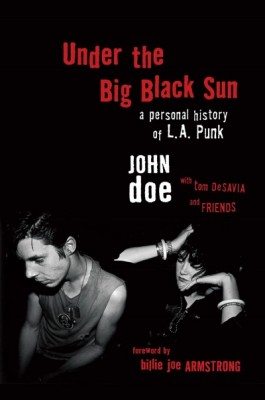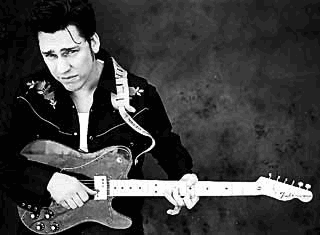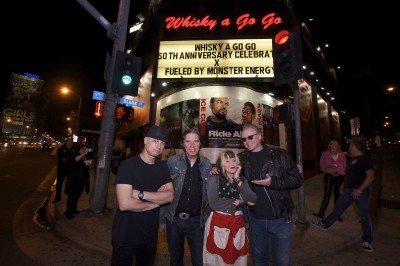 When the topic of punk rock history comes up among music fans, the de facto scenes that always get discussed are New York City and London with the groups that come up most often being The Ramones and Blondie stateside and The Clash and Sex Pistols across the pond. The late 1970s scene in Los Angeles has a tendency to get overlooked and up to this point, has only really been chronicled in Penelope Spheeris’ 1981 documentary, The Decline of Western Civilization. That is until now. John Doe, founding member and bassist for X, one of the seminal bands from that scene recently released Under the Big Black Sun: A Personal History of L.A. Punk.
When the topic of punk rock history comes up among music fans, the de facto scenes that always get discussed are New York City and London with the groups that come up most often being The Ramones and Blondie stateside and The Clash and Sex Pistols across the pond. The late 1970s scene in Los Angeles has a tendency to get overlooked and up to this point, has only really been chronicled in Penelope Spheeris’ 1981 documentary, The Decline of Western Civilization. That is until now. John Doe, founding member and bassist for X, one of the seminal bands from that scene recently released Under the Big Black Sun: A Personal History of L.A. Punk.

Written with former publisher and record label A&R man Tom DeSavia, the 24 chapters that make up this book are actually a compilation of oral histories that are the perspective of a number of people who were part of the scene during its heyday. Doe’s contributions amount to eight chapters which touch on his leaving Baltimore to find a new life in Los Angeles (“Go West, Go West, Go West”), the role of automobiles and the freedom they gave you (“Sunglasses & Cool Cars”) and the definition of punk (“Unvarnished, Detailed, West Coast”). Coming from the perspective of a fan, DeSavia came up with a pair of contributions that address the debauchery that pulled him in (“Acid, Meet Catholicism”) and the clash of pop art and fashion that gave the scene its distinctive aesthetic (“Take My Picture…”).

(Photo by Gary Leonard)
Other contributors include Doe’s former paramour and current creative partner Exene Cervenka (“A Seamless Race”), noted music journalist Chris Morris (“You Better Shut Up and Listen”) and a pair of Go-Go’s, Jane Wiedlin (“The Canterbury Tales”) and Charlotte Caffey (“The Almighty Song”). While the photos of candid backstage scenes, live performances and obscure acts like The Alley Cats and The Plugz help add some punch to the memoir, it was Doe and DeSavi’s decision to not just ask people to write, but to go with a specific topic that addresses different aspects of this scene, that makes this such an effective way to telling the overall story. Thus, you have Dave Alvin of The Blasters (and later X) talking about the effect of roots music throughout “No Slow Songs Tonight: 1979-1982,” Or Teresa Covarubbias of The Brat (with DeSavia) and Robert Lopez (aka El Vez) addressing the Latino influence and how it came into the punk rock coming from that part of the country in “Starry Nights in East LA” and “Punk-Rock Teenage Heaven” respectively.
And while Mike Watt’s “Stuff Gets Twisted Up” is a touching love letter to his fallen Minutemen comrade D. Boon (who died in a 1985 car accident), it’s Jack Grisham of T.S.O.L. (The Sounds of Liberty), whose chapter “Descent” really grasps at the attitude, defiance and aggression that is at the heart of punk rock when he talks about the culture being “…the pathway of letting go.” He’s also unrepentant in saying, “I apologize for nothing. I refuse to stand as some repentant ***k while the crimes of my past are read alound in the court of post-punk history. I love waking up afraid, and although I no longer hold to those beliefs, I don’t regret them.” It’s a sliver of Under the Big Black Sun that not only hints at the complexity that made this such a vibrant scene, but the truth that you’ll read about it in this book.
John Doe will be appearing with X on Aug. 13 at Irving Plaza, 17 Irving Place, NYC. For more information, call 212-307-7171 or visit www.livenation.com.


















